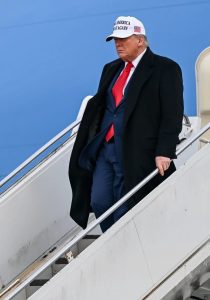 June 18, 2025 – Washington, D.C. — The United States is preparing to implement expanded travel restrictions on 36 countries, including several Caribbean nations with active Citizenship-by-Investment (CBI) programs, citing mounting national security concerns.
June 18, 2025 – Washington, D.C. — The United States is preparing to implement expanded travel restrictions on 36 countries, including several Caribbean nations with active Citizenship-by-Investment (CBI) programs, citing mounting national security concerns.
According to a draft memorandum from the Trump administration, countries such as Antigua and Barbuda, Dominica, Saint Kitts and Nevis, Saint Lucia, Vanuatu, Cambodia, and Egypt have been singled out due to their CBI schemes, which allow foreign nationals to obtain citizenship in exchange for economic investments. The memorandum argues that such programs could be exploited by individuals seeking to bypass traditional immigration vetting procedures.
The full list includes a mix of African, Caribbean, Asian, and Pacific Island nations, among them Angola, Nigeria, Ethiopia, Uganda, and Tonga. The administration’s concerns center on passport security, high rates of visa overstays, and a lack of cooperation in deportation and data-sharing efforts.
60-Day Window to Comply
The Trump administration is giving the countries a 60-day window to address key deficiencies in their document security, background screening processes, and immigration data-sharing practices. Failure to comply could result in full or partial suspension of US visa privileges for their nationals.
“This policy marks the most direct link yet between CBI programs and national security risks,” a senior US official stated, speaking under condition of anonymity. “The lack of transparency and secure documentation in some of these jurisdictions creates vulnerabilities that can be exploited.”
CBI Programs Under Scrutiny
CBI programs have been a controversial but lucrative economic lifeline for many small island nations, especially in the Caribbean. Countries such as Antigua and Barbuda, Dominica, and Saint Kitts and Nevis have heavily relied on these programs to attract foreign capital.
While these nations have implemented due diligence reforms in recent years—often in collaboration with US agencies—their inclusion in the travel ban draft signals a more aggressive US posture toward investment migration.
Notably absent from the list is Grenada, a Caribbean country that also operates a CBI program but maintains an E-2 investor visa treaty with the US. Egypt, which also holds an E-2 treaty, is included, raising questions about consistency in the selection criteria.
Legal and Diplomatic Uncertainty
As of now, the White House and State Department have not released details on when the new restrictions will take effect or which visa categories may be impacted. Legal experts suggest that parts of the policy may face court challenges, particularly if they disproportionately affect dual nationals or individuals who acquired citizenship through legitimate investment routes.
Diplomatic sources indicate that several affected nations are already in discussions with US officials to clarify requirements and avoid the harshest penalties.
Broader Impact on Investment Migration
This move is poised to reshape the global investment migration landscape. Countries with CBI programs may need to tighten eligibility criteria, enhance transparency, and engage in deeper bilateral cooperation with major immigration destinations like the US.
The policy also comes amid heightened scrutiny of migration programs globally, with the US increasingly prioritizing national security and border integrity over economic mobility options for foreign investors.
In the coming weeks, the international community will be watching closely as the affected nations respond to the US ultimatum and seek to preserve access to American visas for their citizens.
Written by: LIIE IMMIGRATION

